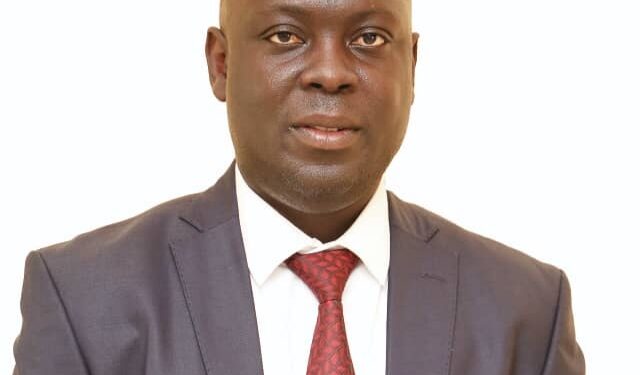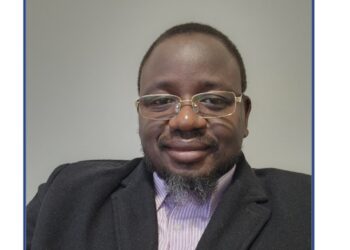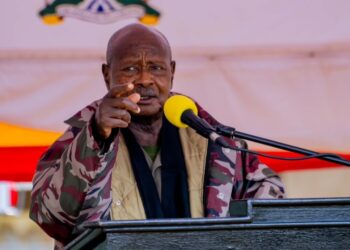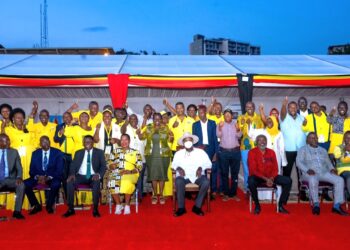Just as we, the true fighters for and advocates for human rights, were still putting our bits together to see how a one Eric Mwesigwa could be helped to get justice for his torture injuries and trauma, we were hit with a bombshell. What we thought was the case turned out much different, according to his own confession made to security chiefs, and later the media at Mbuya in Kampala in the preceding week.
I first got to know about Eric when he was paraded with NUP bosses. Like every normal citizen, I was shocked at his sight-with well positioned scald marks on his chest. His claim at the time was that he had been kidnapped and tortured-by Government. The NUP leaders picked on that claim and amplified it, clearly since it settled in well with them. Without prejudice and as a researcher, patriot and free Ugandan, I have always interested myself in these cases, to know if indeed these things were happening in this Uganda that I know. I have also been in touch with Uganda Human Rights Commission (UHRC) and other agencies, making inquiries on cases they were handling and how.
In the case of Eric, I learnt that UHRC staff had been denied by NUP access to meet him and interview him so as to follow up his case. The leadership of NUP said he was too traumatised and that he couldn’t go to the offices of UHRC at Naguru, apparently because they are near the Police headquarters (reinforcing the claim that police had a hand in his ordeal). When requested that he is interviewed elsewhere, they said “he is still in a state of shock and cannot talk”. This I covered in my article published in these pages last Monday, February 27, 2023, titled: “Cooperate with Government to investigate torture claims.”
My argument then, and now, was/is that if Eric and others claiming to have suffered grievous harm can be in such a state of shock (due to alleged trauma) that they couldn’t/cannot talk to investigators but could/can only talk to politicians raises suspicion. Who should be their first line of defence? It’s a fact that the drama around the “fight for human rights and freedom” is a big sale among international bodies and powers; it’s used as the “cross before the gun” for those agitating for change.
Anybody who wants to understand why that agenda takes up much of the space of activism in Uganda and other “targeted democracies” should understand that things are not as they seem. Human rights interests apply only with a political lens, according to the conduct of these “donors”. They ignore the genuine cases-many of which are occasioned by non-state actors-and put so much attention to those that advance their aims.
I think this is very wrong, and I have always said it: we must not misuse the plight of others for selfish interests. “Human rights” applies to all, but why do our international “partners” and their local contacts apply partisan lenses in reading the script? Who will speak for the Ugandan who truly needs justice, even though they may not be politically active? Civil society is silent when apolitical people have their rights violated; they are dead silent when there is no political capital to reap. They are biased and very compromised! They leave what they ought to do and do what they ought not to do, and they will be judged harshly!
When Eric came out to turn the tide and state that he was, instead, tortured by those whom he initially showed to be his “shoulders to cry on”, it was a shock but, nevertheless, not to so surprising. I had counted on his courage to come out as a sign that he was a serious person who needed help; I didn’t foresee that he would have another version to his plight as he did. But for sometime, we have known that not all that come out to claim torture are indeed torture victims. Many are just self-seekers, being used to paint a bad picture of Uganda. Still, Eric’s issue should be investigated to the very depth of truth!
Also, recall the case of Moses Ssimbwa who was paraded in Nairobi as a torture victim when, in fact, he had been involved in a bodaboda accident!
NUP always says “thousands” of their supporters have been abducted, tortured or even killed, but when asked by UHRC to furnish details of those victims, they only came up with 25 names. As I noted in last Monday’s piece, “the Commission followed up the details, got in touch with the next-of-kin of the persons and in order to obtain further and better particulars concerning circumstances of their ‘arrest’ or whether they were still missing. It was established that out of the 25, seven were released in December 2022, and reunited with their families-some had been charged with murder and others with malicious damage to property.
17 were still missing while the status of could not be established since the contacts of relations were not available”.
Where are all the other “thousands”, mostly likely nonexistent-ghosts! Really, who is fooling who? If Uganda is a country of gross human rights abuses and a desert of freedom, why is it difficult to come up with victims in flesh?
I continue to appeal to Ugandans not to be used for selfish interests and dangerous games, and to always report acts of violation of human rights to reputable organisations and institutions so as to obtain redress.
The author is the Deputy Presidential Press Secretary
Email: faruk.kirunda@statehouse.go.ug
0776980486/0783990861
Do you have a story in your community or an opinion to share with us: Email us at editorial@watchdoguganda.com













